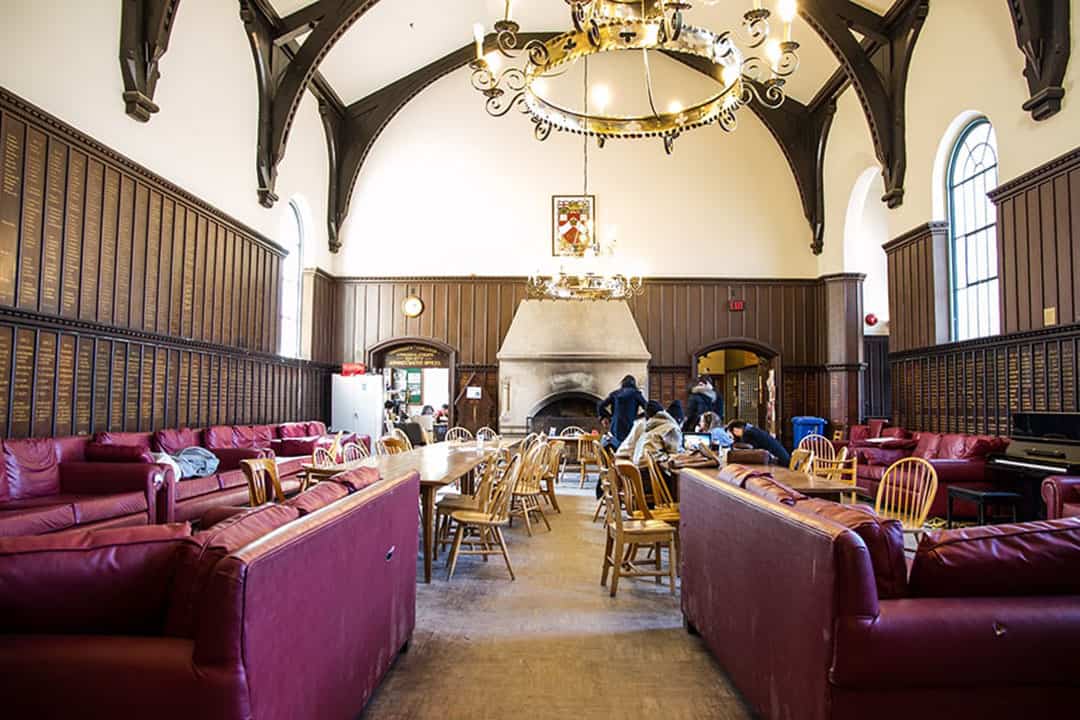University College (UC) has recently released an update on its progress on Truth and Reconciliation. The report follows up on the changes called for in a report from the Committee Responding to Canada’s Truth and Reconciliation Commission that was published in November 2019.
The report recommends that, two years from now, a new follow-up report be released to update the community on UC’s progress on the recommendations.
The University College Literary and Athletic Society plans to hold a forum to discuss the report on December 2, and has invited the community to share what they believe truth and reconciliation should look like at UC.
Recommendations regarding space
A few recommendations in the report addressed the physical space in and around UC.
UC Principal Markus Stock has requested a revision to the two historical plaques in front of the main UC building. The revision will add acknowledgement of Indigenous history to the inscriptions on the plaques. The historical society in charge of the plaques has agreed to the change but it has not given a timeline for when the revision will be completed. Stock plans to regularly follow up on the progress of revising the signs.
The report also proposes the creation of signage within the main UC building that acknowledges the presence of Indigenous peoples and communities that UC resides on.
Another recommendation is that UC create a smudging space. Due to the age and infrastructure of the main UC building, it cannot include a smudging room in the renovations of the Clark Reading Room or the Paul Cadario Conference Centre in Croft Chapter House. UC will continue to consider other possible locations for the smudging site in upcoming renovations to the UC Building and the UC Union Building.
The UC Library was not included in the original report, but the follow-up highlights some new initiatives for it. These initiatives included actively acquiring a mix of fiction and non-fiction books by Indigenous authors, opting to prioritize purchasing books from Indigenous booksellers, and engaging in outreach activities to promote the Indigenous authors and topics collection in UC.
Scholarships and fundraising
UC will also establish new scholarships and, according to the report, “amend the terms of pre-existing scholarships to prioritize… Indigenous and Black students.”
In the summer of 2021, the Academic Advising and Registrar’s Office (AARO) began to offer financial outreach and support to Indigenous students studying during the summer term.
The next steps for the AARO include continuing to focus on financial initiatives and funding opportunities that can benefit Indigenous students, as well as meeting with the Office of the Dean of Students to discuss the process and practicality of establishing a UC mentorship program for Indigenous students.
Some of the new scholarships that prioritize Indigenous students include the Arriba Travel Award for Cognitive Science, the Indigenous Academic Excellence Award, and the Mary Elson Scholarship. There are other scholarships currently going through governance for approval that will be expected in 2022, including the Fletcher-Clark Scholarships for Science and Economics, and the Marjorie Reynolds Scholarship for Indigenous Students.
UC is also exploring the feasibility of establishing a mentorship program for Indigenous students or an Indigenous Living Learning Community. Other initiatives, such as orientation week activities, may be put in effect in consultation with First Nations House.
The Office of Advancement also has “Indigenous Education” as one of its four themes for the UC fundraising campaign’s priorities. Fundraising staff will ensure that Indigenous students’ needs are prioritized when reaching out to potential donors. Some of the funding UC has already raised has been put into the previously mentioned scholarships.
Additionally, the Office of Advancement “has organized communications initiatives focused on Indigenous topics, engaging Indigenous writers and artists for content creation when possible,” reads the report.
Further recommendations in the report include new considerations for course curricula. The report suggests that UC consider making an Indigenous Studies course be required for the Canadian Studies program. It also suggests delving into research on land-based pedagogies, with special consideration to the UC One: Engaging Toronto.


